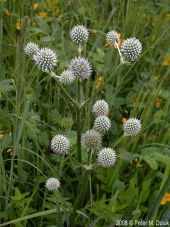Hi Molly,
Im guessing as a rental, establishing major land structures and tree plantings won't be practical. Yet you can establish a market garden, and incorporate swales in your layout so if or when you have a lease agreemen, you can determine if its practical to implement more permanent things like swales. That way you can work around your production bed, since a market garden is what will bring you a definite return this season. Its might not be as much permaculture as you were dreaming of, but sometimes you have to work your way into permaculture, if your trying to grow food immediately. Check out Curtis Stones Urban Farmer channel on YT, to see how he makes lots of produce in small spaces using market garden techniques. You want quick turn over crops, that are in high demand, and that means varieties liked by consumers. You will most likely have to till, to establish these beds, at least this year, unless you can bring in enough
compost to smother the weeds. Also I think its Richard Perkins YT channel,who also has some permaculture type market gardens you may be able to gleen from. If you need more suggestions just ask.
As a rental that can have the rug pulled out from under you, I would get a solid lease contract signed. So you at least know how many years you are guaranteed the space. I mean after you make all the infrastructure improvements, create fertility, increased the property value by incorperating permaculture; then planting things like perennials and or a food forest. It can give incentive for owners who understand rental laws and their rights as property owners/landlords, to simply serve you notice to evacuate, then step into the turn key operation you just spent the last year or two building. Thats why a lease is important, including lease duration, and your rights. So you know how long your legally gaurenteed the land. What people say is irrelevant to the applicable law, and you must get everything in writing under contracts that protect both parties, ie a proper lease agreement addressing all concerns. Then you can evaluate labor/material cost of improvements, to calculate if you have time to get an adequate return on your labor or financial investment.
Like I said, its most likely not going to be profitable beyond a market garden this year, and if you don't have a long term lease agreement that also mitigates if you can even legally dig up a perennial you planted, that under some rental laws is considered a permanent improvement owned by the landlord the minute you plant it. These things are all important, to determine whats most beneficial for you as a renter, as everything you do will inadvertently benefit your landlord, who will at minimum benefit by having a rough feild turned into a garden space ready for planting, with increased fertility.
Hope that give you a few things to consider. Cheers!




